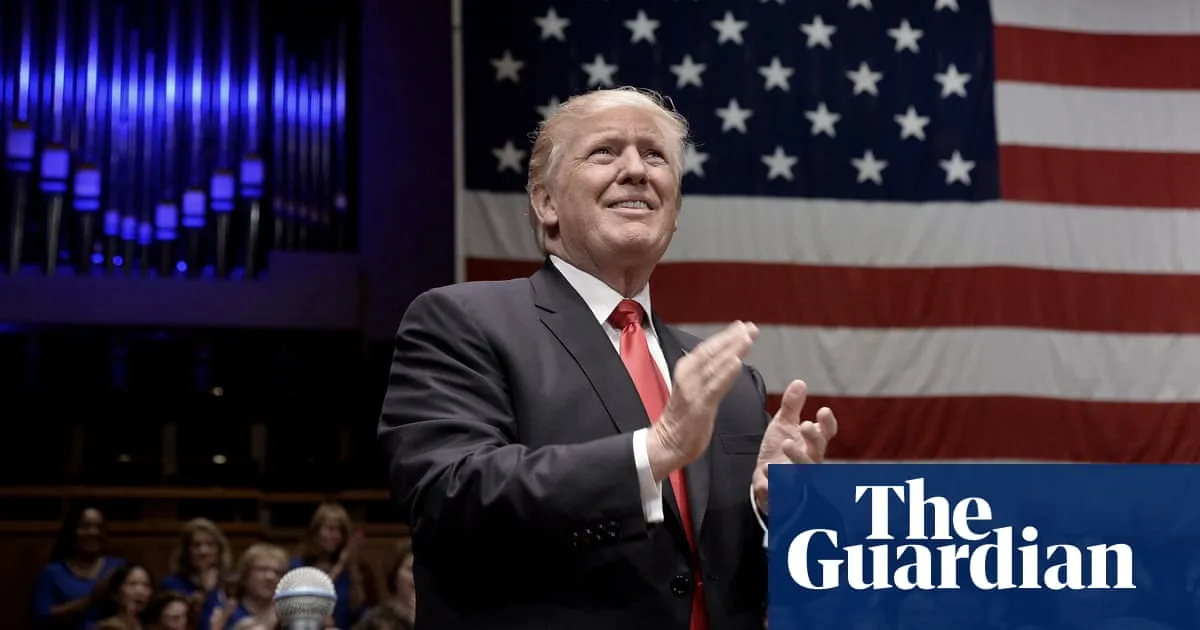
America’s biggest annual gathering of conservatives commenced near Washington, DC, last week, with its organizer, Matt Schlapp, humorously mentioning to Ric Grenell, “My daughters want tickets to all the good Kennedy Center shows.” This light-hearted moment belied the serious undertones of a significant change at the John F. Kennedy Center for the Performing Arts.
Ric Grenell, former acting director of national intelligence, has been appointed by Donald Trump as the interim president of the Kennedy Center. During the Conservative Political Action Conference (CPAC), Grenell shared his vision to “make art great again,” hinting at a grand celebration of Christ’s birth during Christmas.
This unexpected decision to place a loyal Trump supporter in charge has set Trump's anti-woke “MAGA” populism against America’s progressive cultural scene. The move has led to performers canceling shows, donors reconsidering their support, and audience members threatening boycotts, marking the Kennedy Center's biggest crisis in its 54-year history.
Nestled on the banks of the Potomac River in Washington, DC, the Kennedy Center has long been a symbol of bipartisan cooperation. Conceived during Republican President Dwight Eisenhower’s administration and officially opened in 1971, it serves as a living memorial to President John F. Kennedy.
The center offers a diverse array of performances, from theater and contemporary dance to jazz and comedy, and is home to the National Symphony Orchestra and Washington National Opera. Its educational initiatives reach over 2.1 million teachers and students annually.
Earlier this month, Trump ousted chair David Rubenstein and reorganized the board to lean more Republican. This shakeup led to the firing of Kennedy Center president Deborah Rutter and other key staff members. Rutter expressed her dismay, emphasizing the center’s role as a beacon for the arts across America.
Trump has promised a new direction, free from “drag shows or other anti-American propaganda,” despite never attending performances at the center himself. This abrupt takeover stunned the cultural community, leading to significant backlash.
Artists and consultants, including musician Ben Folds and singer Renée Fleming, have resigned in protest. The Manhattan Theater Club canceled a planned run of the play “Eureka Day,” citing financial concerns.
During a concert, singer-songwriter Victoria Clark expressed her opposition with a T-shirt reading “ANTI TRUMP AF,” and comedian W. Kamau Bell criticized the president during his set.
The swift changes at the Kennedy Center have sparked concerns about its future. Critics fear that Trump's influence could alienate artists and donors, leading to a decline in ticket sales and a shift in programming.
Peter Marks, former chief theater critic for The Washington Post, warned that the center could become “weaponized” and lose its status as a non-partisan institution. He emphasized the risk of alienation if the Kennedy Center is perceived as aligned with Trump.
Trump’s cultural tastes are rooted in the 20th century, with an appreciation for artists like Elvis Presley and films such as “Citizen Kane.” His campaign rallies feature music from Andrew Lloyd Webber musicals and other classic tunes.
Suggestions for future performances include a controversial idea from Steve Bannon involving the J6 Prison Choir, reflecting Trump’s tendency to use cultural institutions to further political agendas.
Despite the challenges, there is hope that the arts community will rise to the occasion. Marks believes that the opposition to Trump’s policies could inspire a new wave of artistic expression, ultimately leading to great art.
The unfolding situation at the Kennedy Center serves as a poignant example of the intersection of politics and culture in America, raising important questions about freedom of expression and the role of cultural institutions in a divided society.